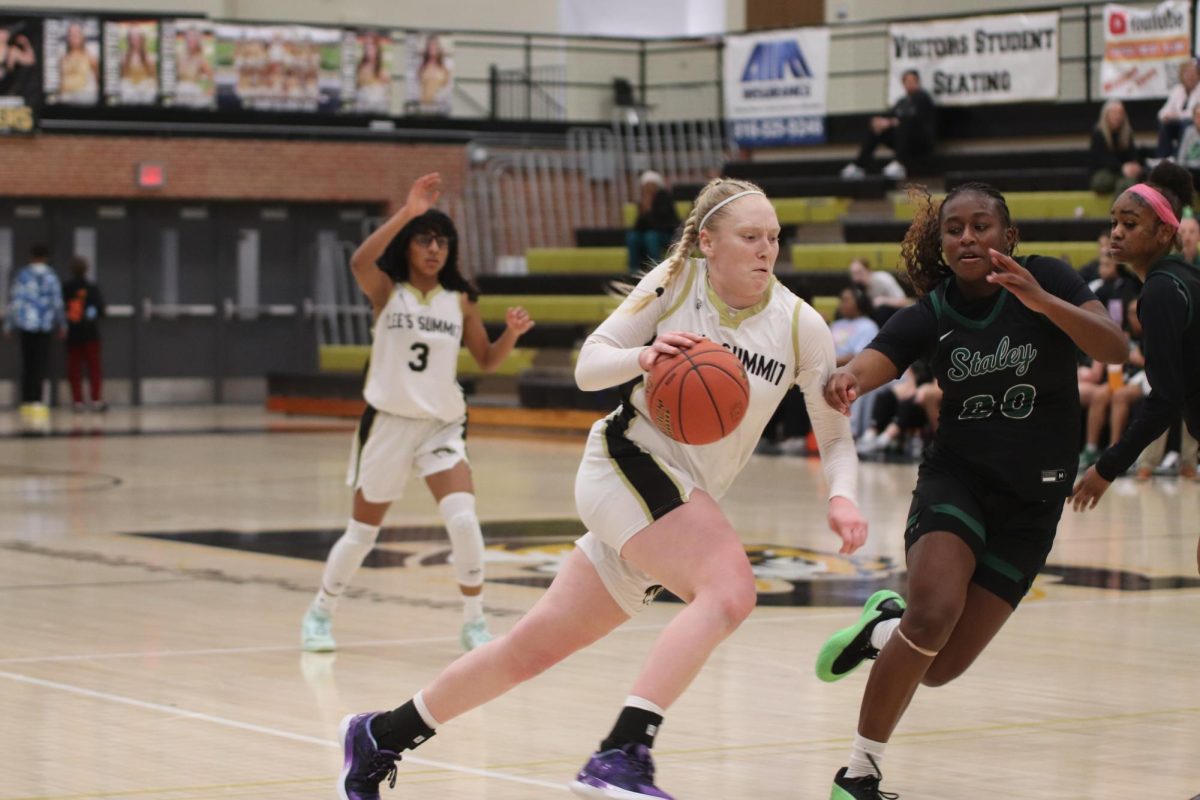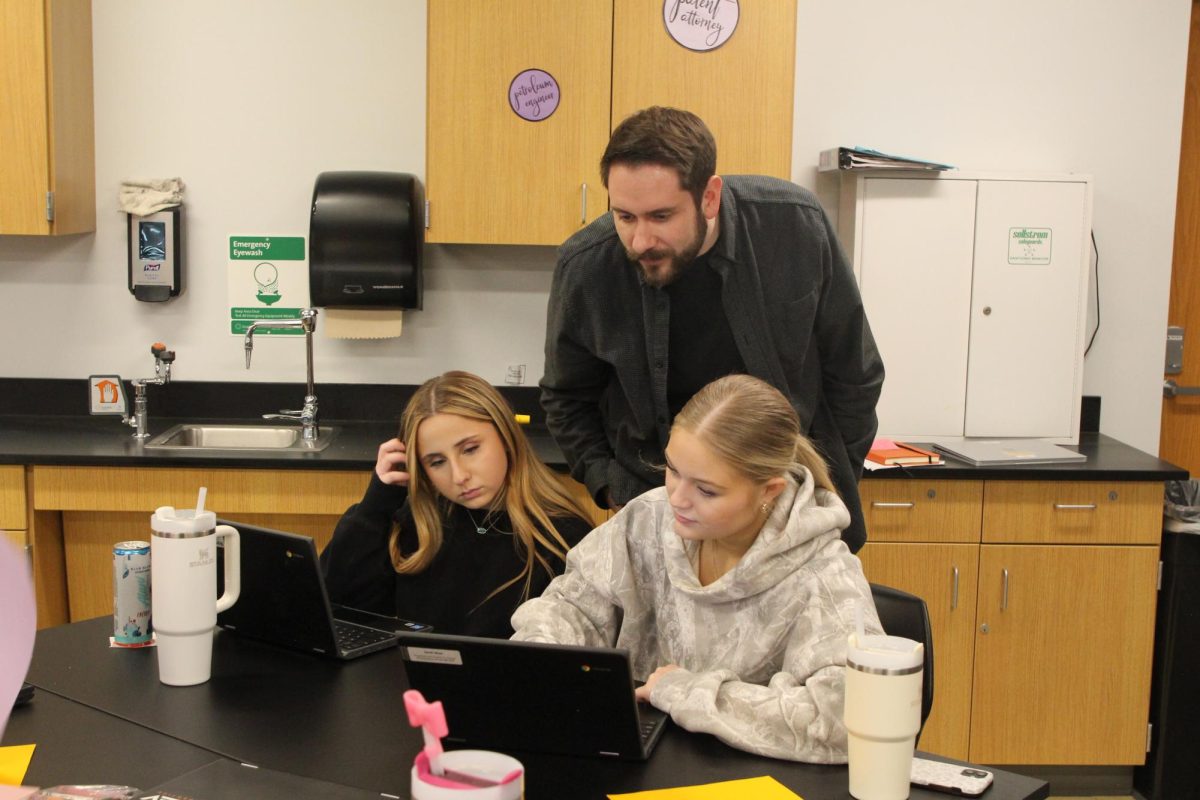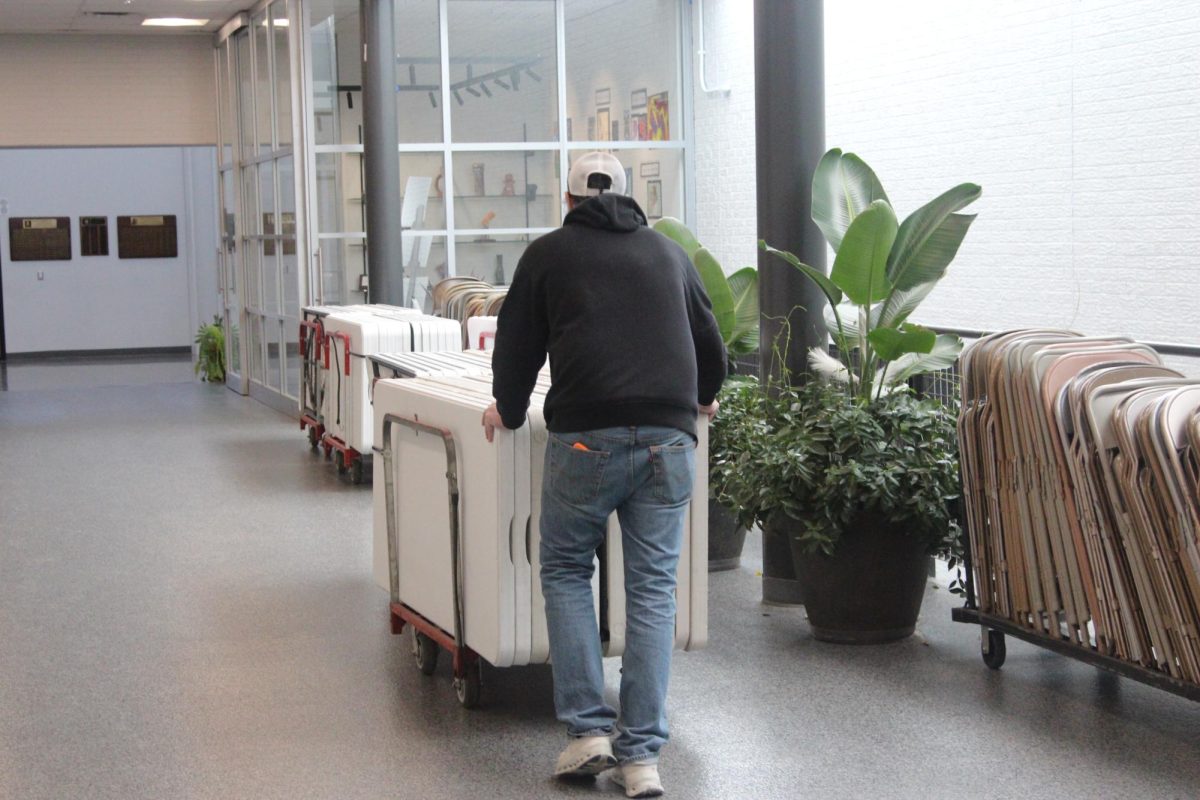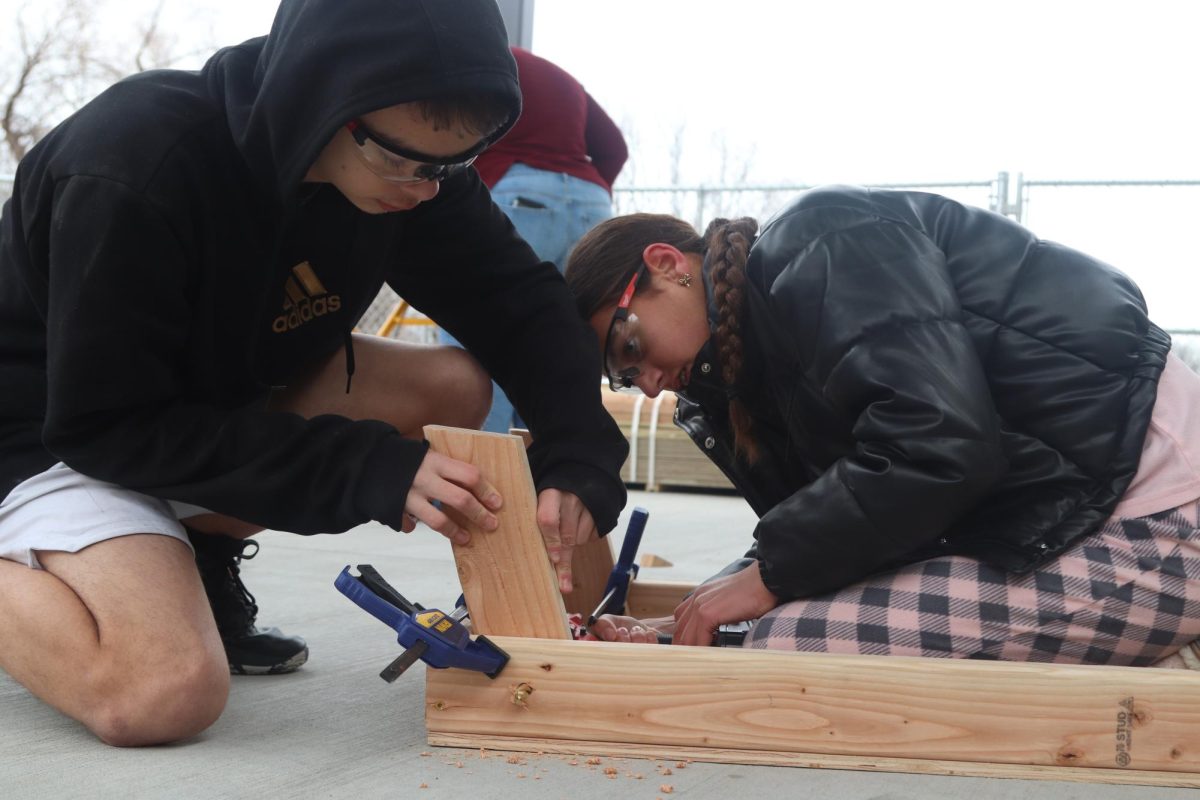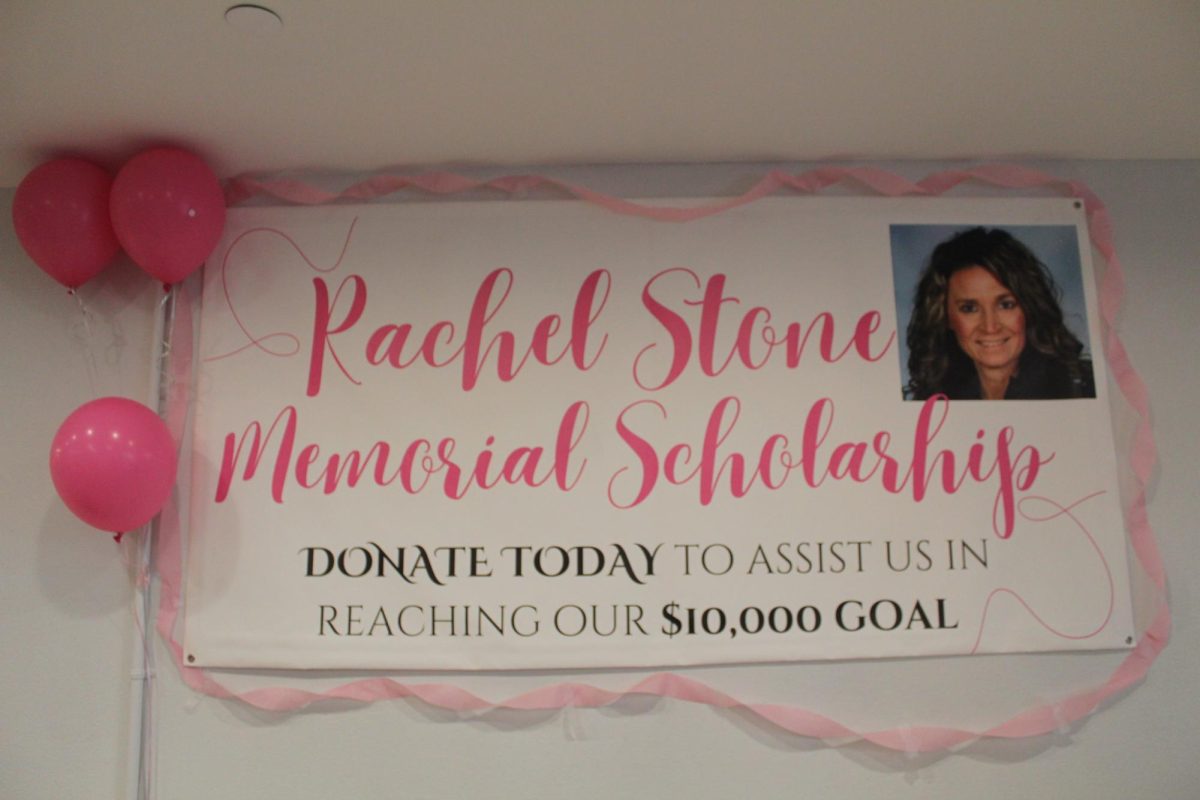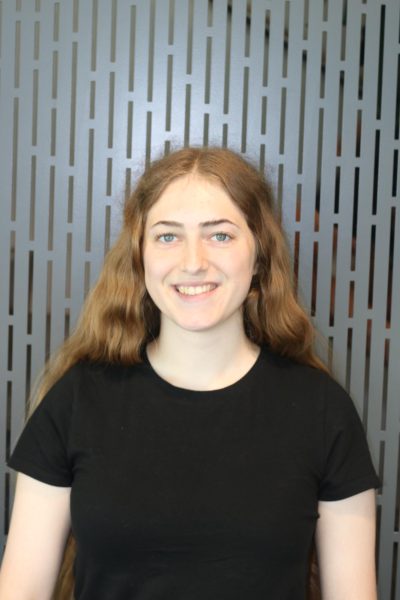Students at LSHS have so many different learning styles and needs. From vocabulary to communication and creative thinking, Ms. Nguyen-Osborn, the Speech Language-Pathologist can be very helpful across the board.
“It’s supporting students’ communication needs, whether or not that be in their classroom. A lot of it is helping support teaching vocabulary skills, like how to use context clues, how to use text evidence, things like that, more explicit instruction in learning vocabulary,” Nguyen-Osborn said.
Some students have different needs and therefore a different set of tools to succeed.
“In the life skills classroom, there are a handful of students that are non-verbal communicators, and we need to use other tools to help with communication. You see the device, but there’s also gestures, there’s also pointing, facial expression, and trying to give them the skills that they are comfortable with using to support being effective communicators,” Nguyen-Osborn said.
Even with the wide range of student needs, each person has a way of being supported.
“I think a lot of the students, and people in general, see me with the life skills students; in particular, the higher needs students. I also work with the students who need help in their modified English classes, in the sped department that have language impairment, or some other health related issue that would impact their ability to like learn, to supplement what they’re learning in the classroom. That’s a completely different group than life skills. The kind of support that I’m giving life skills students is more functional communication-based. That’s where I’m teaching the vocab skills, inferencing skills, or how can we think outside of the box based on what we read. It’s very explicit instructions that maybe they wouldn’t get directly in their English class,” Nguyen-Osborn said.
Despite this being her first year at LSHS, Ms. Nguyen-Osborn has made a strong positive impact with her students.
“For the longest time, I tried doing things on my own because some of my teachers back then kept saying that I can’t keep asking for help all the time, and that’s understandable. I went to not asking for help at all. Then I realized that it’s okay to ask for help sometimes. So I really love having her [Ms. Nguyen Osborn] help me out with a bunch of things,” sophomore Alyson Garza said.
These skills grow in other classes and learning environments.
“A lot of [my] struggle in the past was trying to express my answers a little more because I knew what the answer was, I just didn’t know how to say it. I think that’s helped me a lot more,” Garza said.
The impact of their support from Ms. Nguyen-Osborn is seen in real world situations as well.
“My parents were having me getting ready for my permit test that I still have not done yet, and my dad was having me read out the questions, and I didn’t stutter once, but took a couple pauses. That’s been getting better,” Garza said.
With so many enthusiastic people, the Speech Language-Pathology classroom can be a very positive environment.
“We always made her [Ms. Nguyen-Osborn] laugh a lot. We always talk a lot, even I have friends in there, and it’s pretty fun,” sophomore Kamoria Martin said.
With all the fun these students experience, Ms. Nguyen-Osborn still takes into consideration the different goals each student has in their journey.
“I think it’s such a fun challenge here [high school], because y’all are definitely not kids. I’m not treating you like kids, but I love it because this is such an exciting time of life. Everyone’s like, I can’t wait to graduate. Everyone’s got different goals and different things they want to do. It’s so cool to be toward the end of their relay race. I think that’s such a cool thing,” Nguyen-Osborn said.
The skills that these students learn make a difference even after they leave high school.
“For example one students is going to go work as a mechanic after High School is done. It’s like, let’s work on your communication, whether that be how you interact with customers, etc. That’s gonna look really different for a student that wants to go to college. It’s like, we’ve got to work on your essay writing,” Nguyen-Osborn said.
Each student has an opportunity to be heard and helped with each need that they have.
“Trying to honor all of my students is really important to me,” Nguyen-Osborn said.


